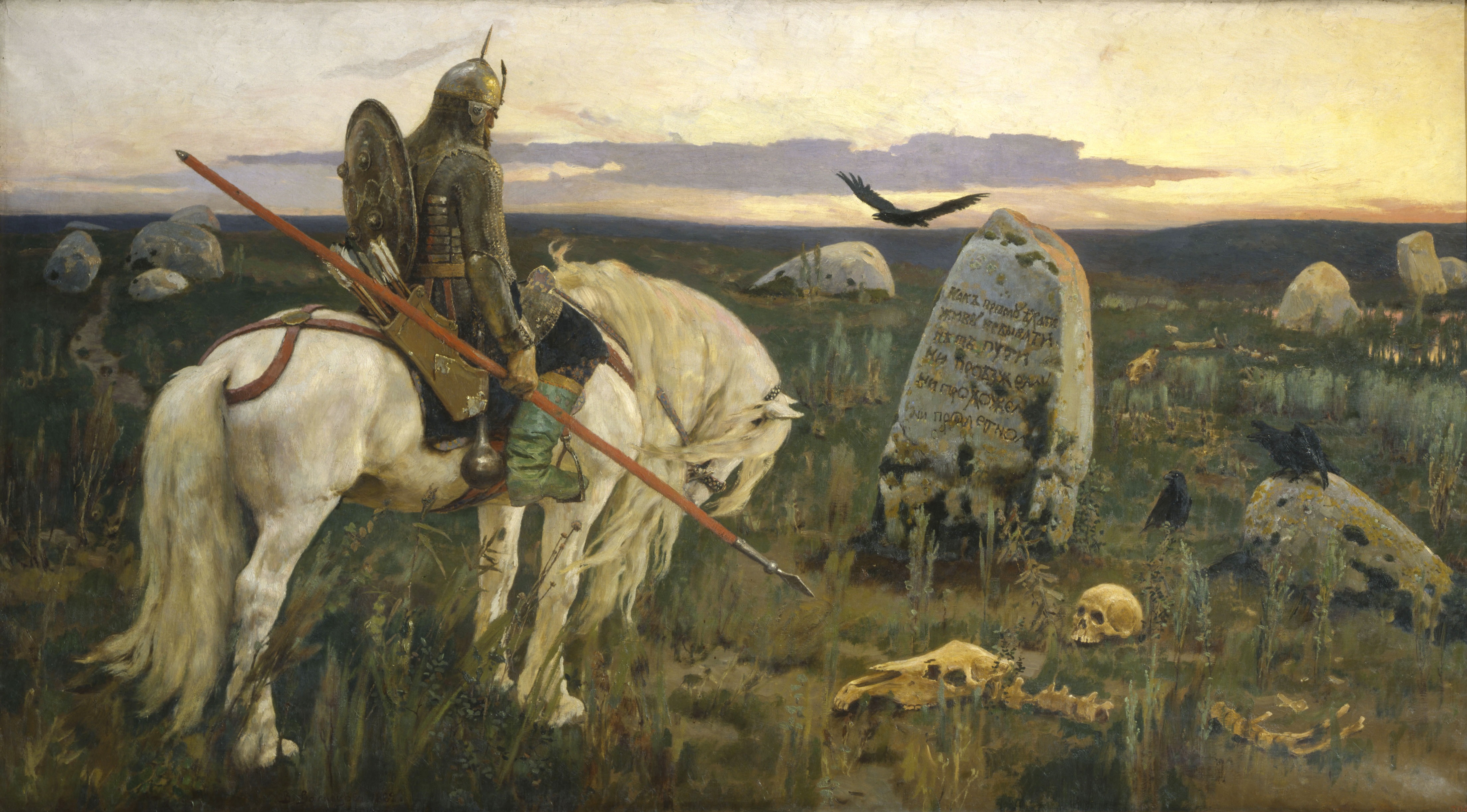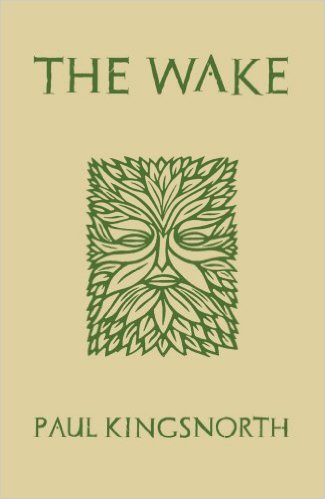
The Knight at the Crossroads by Viktor Vasnetsov 1882
Having thought about what might constitute the Seven Deadly Sins in Historical Fiction, I’m now getting a little balance by paying attention to the Seven Virtues. And one of them for certain is bravery, and by this, I mean courage with the language. It is a chance for us to wield words from the past and words from the present to give a unique flavour to what we are writing, and somehow breathe life into the period.
One of the most unusual novels of recent times is The Wake, by Paul Kingsnorth, set just before the Norman Invasion.
He claims his language is ‘written in a tongue that no one has ever spoken, but which is intended to project a ghost image of the speech patterns of a long-dead land: a place at once alien and familiar.’
the night was clere though i slept i seen it. though i slept i seen the calm hierde naht only the still. when i gan down to sleep all was clere in the land and my dreams was full of stillness but my dreams did not cepe me still
when i woc in the mergen all was blaec though the night had gan and all wolde be blaec after and for all time. a great wind had cum in the night and all was blown then and broc. none had thought a wind lic this colde cum for all was blithe lifan as they always had and who will hiere the gleoman when the tales he tells is blaec who locs at the heofon if it brings him regn who locs in the mere when there seems no end to its deopness
none will loc but the wind will cum. the wind cares not for the hopes of men
the times after will be for them who seen the cuman
the times after will be for the waecend
Excerpt from: https://unbound.co.uk/books/the-wake/excerpt
I loved the fact that there are no capital letters, which somehow gives the impression of uncials. Part of what made the book strange was its uncompromisingly unlikable but realistic protagonist, but part of it was the way the language drew you in to a simpler time, and supported this violent, even sadistc view of life. For the opposite extreme, take this example, from Peter Ackroyd’s ‘Hawksmoor’, a mannered version of the 18th century – almost, but not quite a pastiche. In this novel, taking place in two time periods, the past and present are contrasted in their language.
Is Dust immortal then, I ask’d him, so that we may see it blowing through the Centuries? But as Walter gave no Answer I jested with him further to break his Melancholy humour: What is Dust, Master Pyne?
And he reflected a little: It is particles of Matter, no doubt.
Then we are all Dust indeed, are we not?
And in a feigned Voice he murmered, For Dust thou art and shalt to Dust return. Then he made a Sour face, but only to laugh the more.
Here, modern spelling, grammar and capitalization have been jettisoned in favour of something that will help us to feel our way into the past through the language itself, not just what it depicts. The medium has become the message.
One of the difficulties of attempting something this bold is that it puts the author’s voice slap bang in front of the reader. So it is a brave writer who moulds the language in this way – and I have to say, probably a literary writer, because the bravery has to exist on both sides of the divide – the writer and the reader. Not many readers are prepared to work that hard, but the hope is, of course, that the reader will soon become immersed in the work, despite the fact that the text cannot easily become ‘invisible.’ But this is something that is rarely attempted in contemporary fiction. There is something about history and the rich dictionary and etymology of the past that demands exploration, and is almost irresistible for a writer. Even without describing a single setting, the language alone can, tardis-like, transport us back in time.


Peter Ackroyd is one of my favourite authors. I also like what I have read about Wake. It is extraordinary but reading it on kindle difficult I found. I must get the actual book.
Yes, the actual book is more digestible. Still took me quite a while to get through it – in short bursts seemed to work for me.